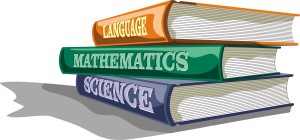Since school let out last month, I’ve slowed down with posts here in exchange for summer playfulness with my daughter and a new blog that’s just for fun where I’ve been participating primarily in photography challenges. I am currently working on a detailed post to accompany an older post on play (Playground Politics and the Power of Inclusion), this one though centers on play’s contribution to cognitive, social-cognitive and self-regulatory development. In the interim, I want to try something different here on “cognitioneducation.”
It’s a Q&A challenge where I post a question– “I’ve got a question for you: [fill in the blank]” — and you post answers. Once a set of answers are “in” I’ll write a post summarizing the collective wisdom, including my answer to the question. To participate, you can either respond in the comment section here or on your own blog; if you choose to write your own post though, please link up to this one so I can track answers to collate for my summary.
As you can see from the title, the question I want to start with is: “What’s the purpose of education?” You might think folks on the same side of education reform debates share assumptions about this, but I find over and over again that that’s not necessarily the case. No matter how much else we might share in common, we may very well diverge on this note, perhaps without even knowing it. Whether you are a teacher, a parent, a student, or none-of-the-above, I suspect you have an answer to the question and I want to know what you think.


I believe the divergence comes from an unclear definition as to what the definition of “education” is. It amazes me that reform debates hardly start by first defining what education even means–so I very much appreciate this question. To answer it, I believe the purpose of education is to provide a person with a layered, interconnected understanding of the world, the self, the relationship between both, and the foundations to actively contribute to it.
I agree, Chantal – thanks for your response.We’d get a lot further in much less time if less was assumed and more clarified from the start. All to often debates are not two sides of the same coin, after all, for similar reasons.
I think the purpose is twofold. One, the purpose of education is, for the individual, self-improvement. This takes many forms, including learning job skills, emotion regulation, how to learn, interesting stuff to think and talk about, the skill of persuasive argument, and self-efficacy. Two, the purpose of education is, for society, to provide a set of facts, ideas, and approaches to problems that function as common ground for any two members of that culture. For example, those educated in the U.S. can understand references to Plymouth Rock and Pilgrims, or that “X” means “times” in an equation. That is, we need not only a common language but also a set of common referents. If everyone knew only the idiosyncratic information they ran across in daily life, it would make it much harder to communicate with each other.
Thank you for your thoughtful contribution Denise!
I think that education should be about teaching children critical thinking skills, social skills, emotional intelligence and preparing them for the workplace.
Thanks for adding in your perspective, Faye!
The purpose of education is to equip students with the knowledge and skills needed to think critically, make informed decisions, and solve real world problems. It also involves teaching them positive values and good citizenship.
Thank you for joining in, Trevor.
Schools are a mere preparation for further fields. And after that, we are free to choose our lines as per our interests. Like, one needs to have a good command over the language if he wishes for a future as a Writer. Schools provide us with a wide variety of subjects and hence we don’t need to face much hurdles deciding our future domains.
Also, I’d like to include that, as we all live in a conflated world, knowledge of things that surround us is also a must. Who says an engineer doesn’t need to have knowledge of Medical Sciences? That could save us from rushing to the doctors, everytime we suffer a mild illness.
Hope its sufficient…:p
Yes, this is quite sufficient! Thank you for taking the time to respond. I’ll be writing my summary soon.
I believe the purpose of education is to help find connections to self and develop a sense of spirituality. The role of the educator should be to facilitate learning and opportunities to explore, contemplate, and draw meaning; not to impose thinking or values. The problem is that education has become more associated with making a living rather than an opportunity to create self.
Thank you for taking the time to reply. I really appreciate your response and will start my summary of all the responses soon.
As an educator myself, I subscribe to Rudolf Steiner’s view on this question. Education literally means the process of leading things out, bringing out knowledge and understanding, drawing from the individual inner capacities. From a less esoteric perspective, the ability to analyze is paramount, thus presenting techniques and helping to develop and refine skills is more important in my view than presenting information, per se.
Thanks for taking the time to reply – I appreciate it and will start my summary of all the the responses soon. I do agree with you though, in terms of the importance of refining skills.
Education is a process of knowing, understanding, analysing and later implementing consciously into ones day to day activities.
Thank you for sharing your thoughts. I will write a summary of all the comments soon.
[…] aim with this blog post then: why did I ask my blog visitors what their understanding was, of the purpose of education? I did it because right now, folks are clamoring for educational reform and folks are critiquing […]